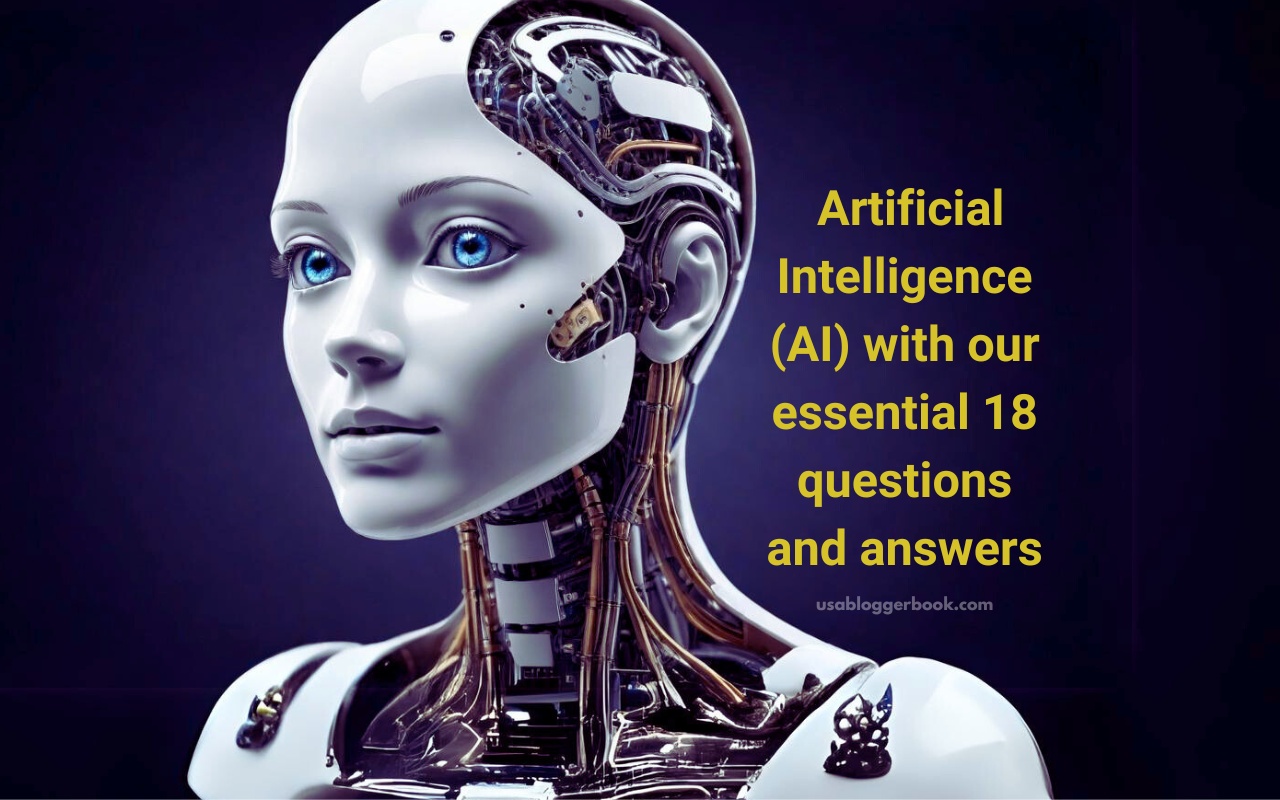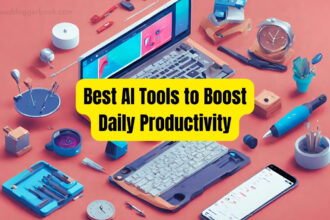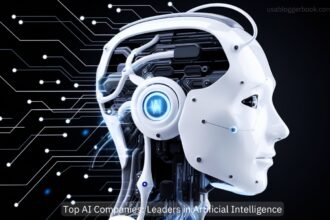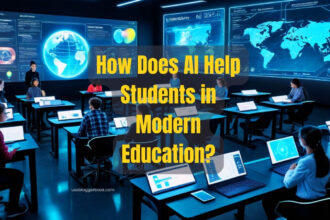In this blog post, we are covering 18 Artificial Intelligence Important Questions and Answers. Nowadays everywhere AI topic is discussed, So I have listed here various interesting and educational AI questions with detailed answers. It helps to understand Ai more deeply.
- Are AI detectors accurate?
- How is AI changing the world?
- How does AI work?
- How to Chat with AI?
- What AI can generate images?
- What is Bard (Gemini) AI?
- What is the character Ai?
- What is Google AI?
- What is Midjourney AI?
- What is perplexity ai?
- When Ai become self-aware?
- When Ai was invented?
- Will Ai replace accountants?
- Will AI replace data analysts?
- Will Ai replace lawyers?
- Will AI replace programmers?
- Why AI is good?
- Why ai is bad?
Are AI detectors accurate?
Answer:
Why AI Detectors Aren’t Perfect
- The Cat-and-Mouse Game: AI text generators are always getting better at sounding human. Detectors need to constantly play catch-up.
- Different Strengths and Weaknesses: Some detectors may be great at spotting older AI models, but struggle with the newest ones.
- Human Error Isn’t Perfect Either: If a person writes in a confusing or error-filled way, it might get mistakenly flagged as AI-generated.
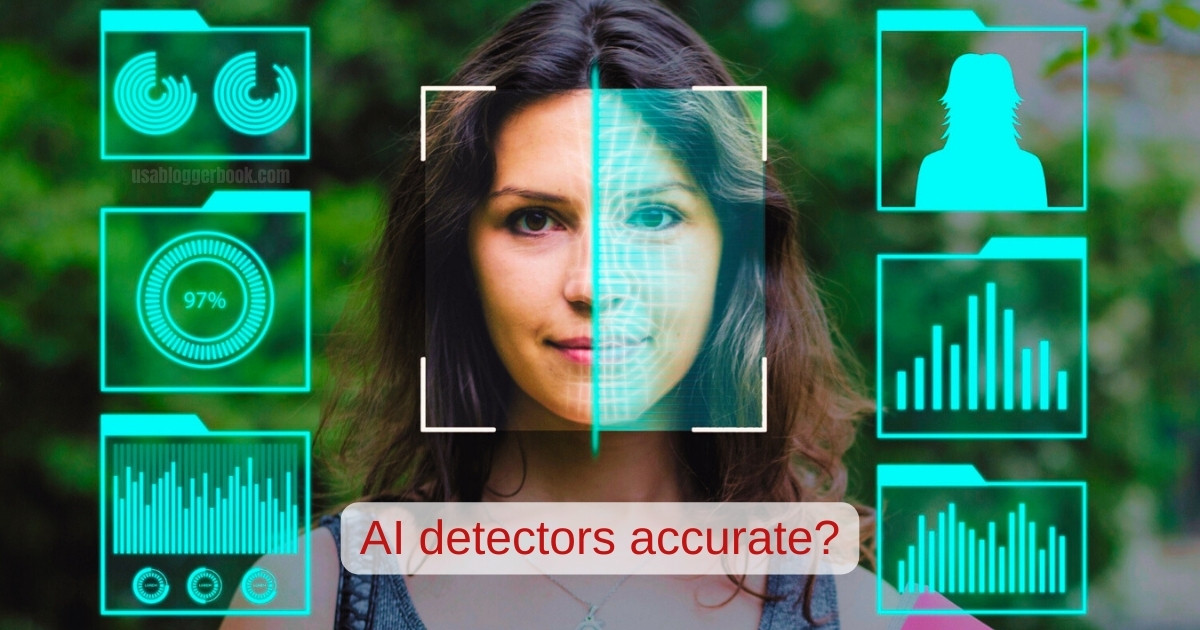
Practical Tips (Expanded)
- Use Detectors as a Guide, Not a Verdict: Don’t solely rely on these tools for your final judgment.
- Analyze, Don’t Just Scan: If a detector flags something, read it carefully yourself. Is the writing weirdly structured, or does it make logical errors?
- Prioritize Quality Over “Undetectability”: Aim to write with genuine clarity and value – this will outshine worries about detection in the long run.
Additional Factors
- Text Length: Short samples are harder for detectors to analyze accurately.
- Training Data: The information a detector was trained on influences what it recognizes as “AI-like.”
How is AI changing the world?
Answer:
Watch out, because AI is here to disrupt! It is transforming how we live, how doctors help us stay safe, and even how we entertain ourselves.
Intelligent Employment
- Goodbye, monotonous responsibilities: AI can handle mindless tasks, leaving us more time to be imaginative.
- Intelligent decisions: AI gathers large amounts of data to assist companies in making smarter decisions.
- Happy clients: Chatbots are accessible 24/7 and are improving at understanding what you truly require.
Healthcare facilities are upgrading
- AI has our back: It helps doctors discover problems sooner and speeds up the hunt for cures.
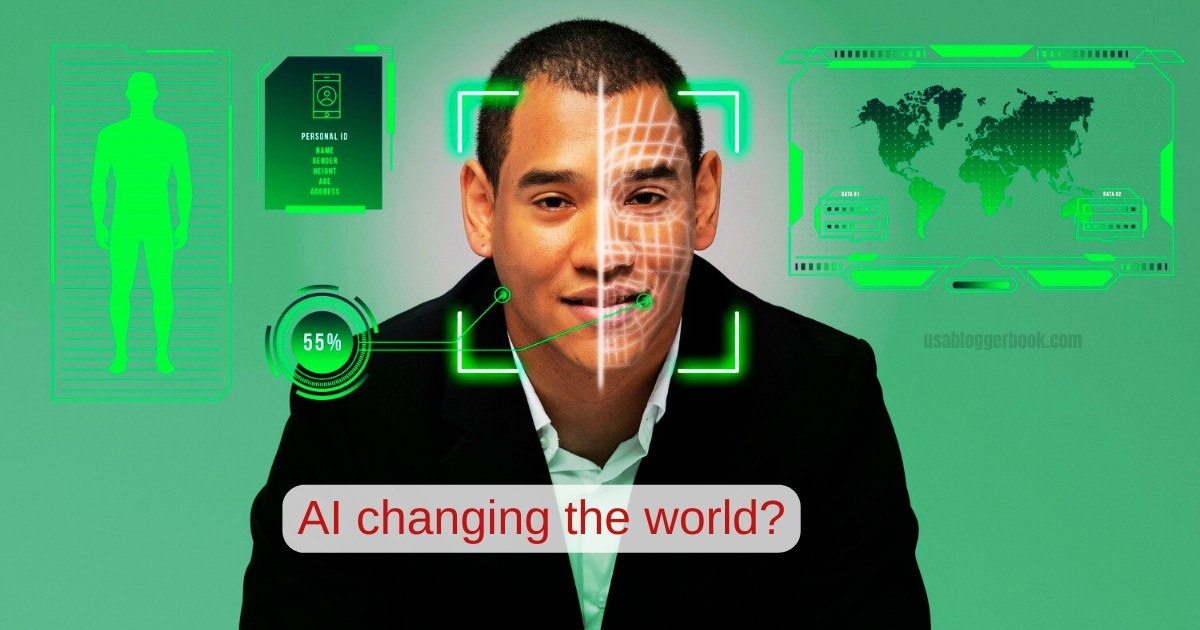
Your every day, leveled up
“Alexa, turn on the lights!” Smart homes make life easier and even save energy. Self-driving cars are on the horizon. Expect a world with fewer accidents and less traffic – that’s the dream.
-
- No more endless scrolling: AI learns what you like, so you actually find stuff you enjoy online.
- The big impact Saving the planet: AI helps us fight climate change by figuring out smarter ways to use resources.
- Help where it’s needed: AI can track where people need food and supplies after disasters and make sure aid gets there fast.
This is just getting started. Count on AI to transform even more stuff in the future. Way to make the world a little more sci-fi.
Take advantage of AI to provide therapy that is tailored to your personal needs.
How does AI work?
Answer:
AI isn’t magic! At its core, AI systems learn and make decisions based on data. Here’s a simplified breakdown:
-
-
- The Fuel: Data
- AI needs lots of data – text, images, numbers, you name it!
- The more data, and the better its quality, the smarter the AI can become.
- The Brains: Algorithms and Models
- Algorithms are like step-by-step instructions for the AI to follow.
- Machine Learning: A key AI type, where algorithms adjust based on data patterns, without being explicitly programmed for every possibility.
- Think of this like how a child learns to recognize a cat after seeing multiple examples.
- Tasks and Predictions
- Different AI, Different Jobs: Some AI can translate languages, others recognize objects, or play complex games.
- AI Output: Depending on the task, an AI might provide a translation, a label for an image (“cat!”), or its next move in chess.
- The Fuel: Data
-
How to Chat with AI?
Answer:
You likely interact with AI more than you realize! Here are common ways to engage:
-
- Chatbots:
-
- Websites & Apps: Many customer service or support functions now use AI-powered chatbots. Look for the chat icon!
- Dedicated Chatbot Apps: Try playful chatbots like Replika, or experiment with more niche AI companions.
- Smart Assistants:
-
- Smart Speakers & Home Devices: Ask Alexa, Google Assistant, or Siri for info, to play music, or to control your smart home.
- Phone Assistants: Use voice commands on your smartphone for tasks and quick questions.
- AI-Powered Tools:
-
- Writing Assistants: Tools like Grammarly offer AI-powered suggestions and corrections.
- Image Generators: Experiment with text-to-image generators like DALL-E or Midjourney.
- Online Games: Many games have AI-controlled opponents of varying difficulty.
Tips for Chatting with AI
-
-
- Be Clear: Simple, direct questions get better results, especially with early-stage AI.
- Experiment: Each AI has strengths and weaknesses. Explore to discover what works best.
- Manage Expectations: AI isn’t human. Have fun, but don’t expect fully natural conversations yet.
-
What AI can generate images?
Answer:
A growing number of powerful AI tools can generate stunning and unique images from just a simple text description. Here are some popular options:
-
-
- Top Players:
- DALL-E 2 (OpenAI): One of the most advanced, generating highly realistic and creative images.
- Midjourney: Known for its artistic and dreamlike style. Access is usually through Discord.
- Stable Diffusion: Open-source and versatile, with many community-created variations.
- How it Works (Simplified):
- These AI models are trained on massive datasets of images and text descriptions.
- You provide a text prompt (e.g., “A watercolor painting of a robot dog on a beach”)
- The AI interprets your words and generates an image matching your description.
- What You Can Create:
- The possibilities are endless! Generate artwork, product mockups, photorealistic scenes, memes, etc.
- Top Players:
-
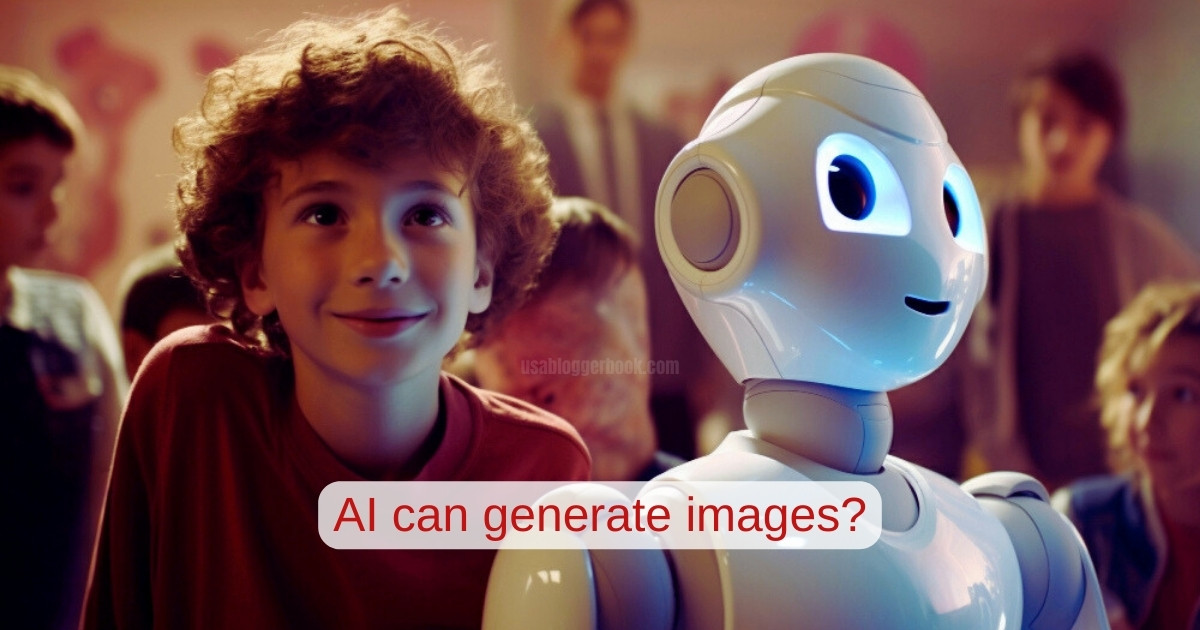
Tips:
-
-
- Experiment with Prompts: The more descriptive and creative your text, the more interesting the results.
- Explore Different AIs: Each tool has its own stylistic strengths.
-
What is Bard (Gemini) AI?
Answer:
Bard (Gemini) AI is the current name for Google’s conversational AI and chatbot technology. It’s the updated and rebranded version of what was formerly known as Bard.
Why the Name Change?
-
-
- Avoiding Confusion: There are multiple AI models and tools out there called “Bard.” Google likely wanted a unique name for its high-profile project.
- Project Gemini: “Gemini” likely refers to one of Google’s internal AI development programs and aligns with their focus on advanced language models.
-
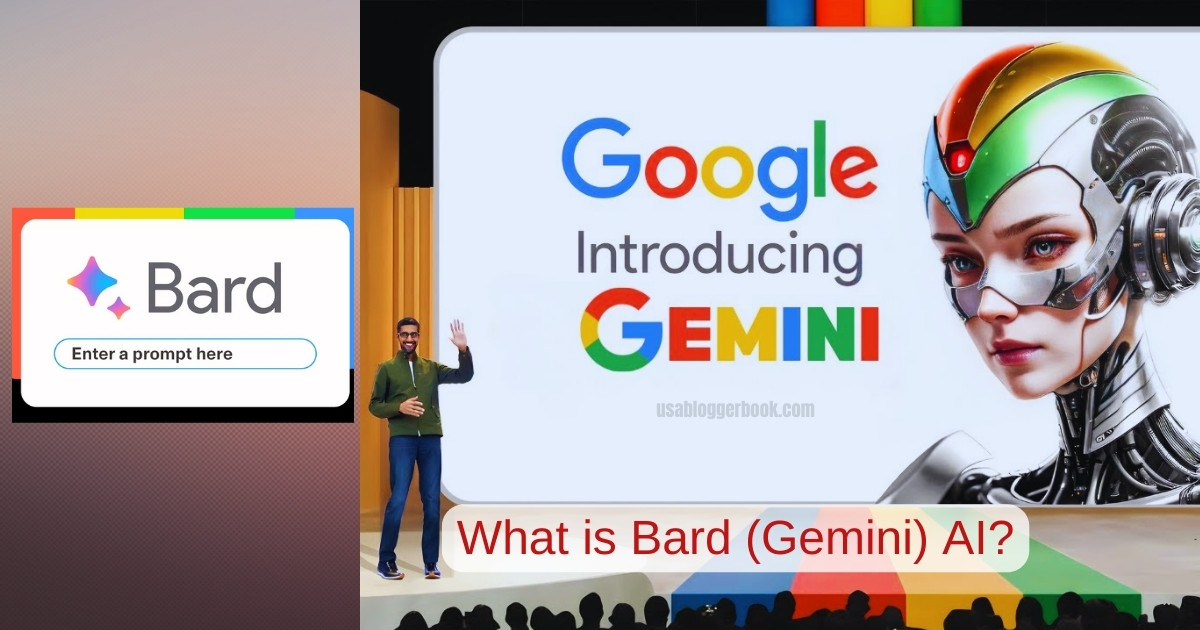
Key Points to Remember
-
-
- It’s still Google’s AI: Despite the rebranding, the core technology and capabilities are built upon the foundation of the original Bard, powered by LaMDA.
- Focus on Search: Google aims to integrate Gemini deeply into Google Search, changing how we find information.
-
Read More: Everything to know about the Devin AI Software Engineer Tool
What is the character Ai?
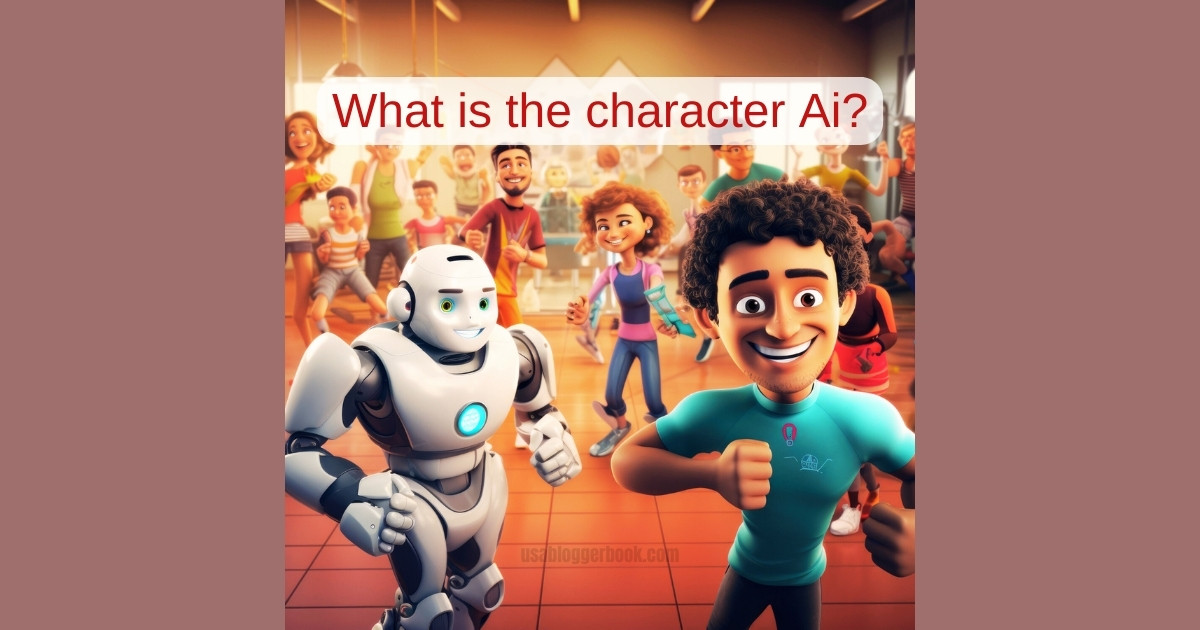
Answer:
Character.AI is a fascinating website and platform where you can chat with a wide range of AI-powered characters. Here’s what sets it apart:
-
-
- Create and Converse:
- Users can build unique AI chatbots with distinct personalities, knowledge, and conversational styles.
- Talk to historical figures, fictional favorites, or entirely original creations from the community.
- Customization:
- Creators have fine-grain control over how their AI character responds, its memory, and the information it has access to.
- This leads to incredibly diverse and engaging conversations.
- Community-Driven:
- Explore a vast library of characters others have made.
- Rate characters, contribute to improving them, or build upon existing ideas.
- Beyond Just Chatting:
- Some advanced characters incorporate image generation, role-playing elements, or other unique capabilities.
- Create and Converse:
-
What is Google AI?
Answer:
Google AI is a division within Google focused entirely on researching, developing, and responsibly deploying artificial intelligence technologies. Here’s a more detail of what it is and does:
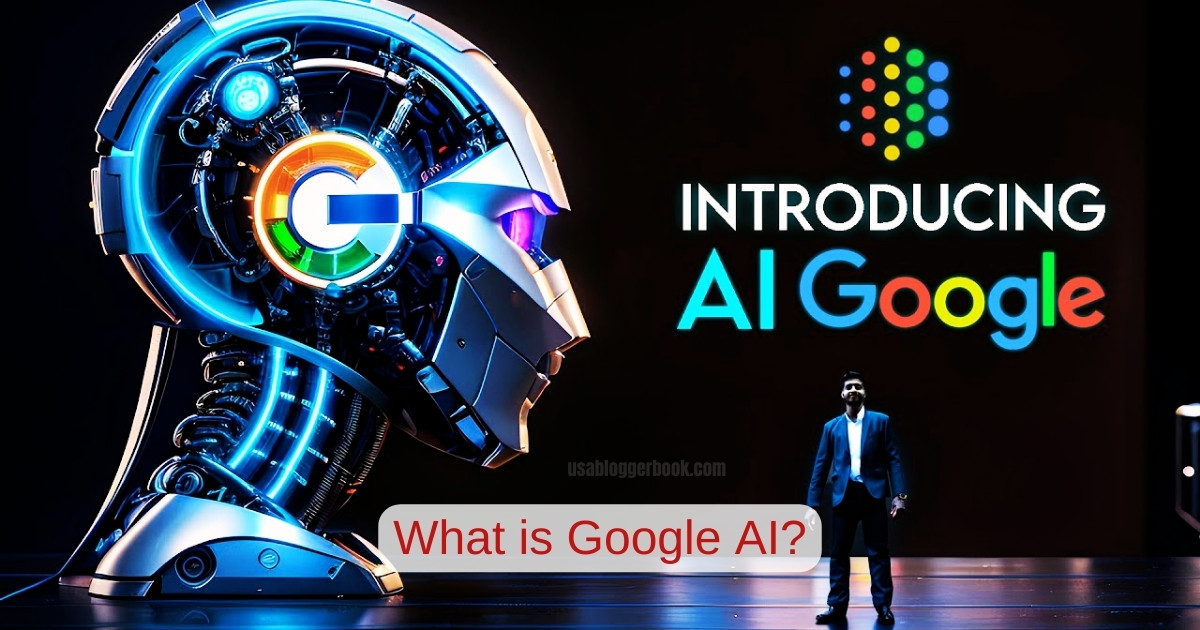
Key Areas of Focus
-
-
- Research: Google AI pushes the boundaries of AI through cutting-edge research in areas like:
- Machine Learning: Developing algorithms that allow computers to learn from data.
- Natural Language Processing (NLP): Allowing computers to interpret and produce human language.
- Computer Vision: Teaching computers to interpret visual information.
- Robotics: Creating intelligent robots for various purposes.
- Products and Tools Google AI’s research translates into powerful tools and technologies used across Google products and beyond, including:
- Google Search: More relevant and natural search results.
- Google Translate: Breaking down language barriers.
- Google Photos: Smart image organization and search.
- TensorFlow: A powerful open-source machine learning platform.
- Social Responsibility: Google AI prioritizes the ethical and responsible development of AI. They work on:
- Fairness: Addressing bias and ensuring AI systems are fair and inclusive.
- Transparency: Explaining how AI models make decisions.
- Safety: Ensuring AI systems are secure and reliable.
- Research: Google AI pushes the boundaries of AI through cutting-edge research in areas like:
-
Why Google AI Matters
Google AI is leading the field in AI advancements. Their work shapes how we interact with technology in numerous ways, and their commitment to responsible AI helps ensure the benefits are realized while potential risks are mitigated.
Learn More
-
-
- Google AI Website: Get in-depth information on ongoing projects and research: https://ai.google/
- Google AI Blog: Read the latest announcements and thought leadership pieces: https://blog.google/technology/ai/
-
What is Midjourney AI?
Answer:
-
-
- Generative AI for Images: Midjourney is an independent research lab that has created a powerful artificial intelligence program capable of generating images from text descriptions.
- Using Text Prompts: You provide Midjourney with a text description (called a prompt) of what you’d like to visualize, and the AI generates a set of unique images based on your words.
- Still in Development: Midjourney is currently in its open beta phase, meaning it’s available for people to use and provide feedback as the system continues to improve.
-
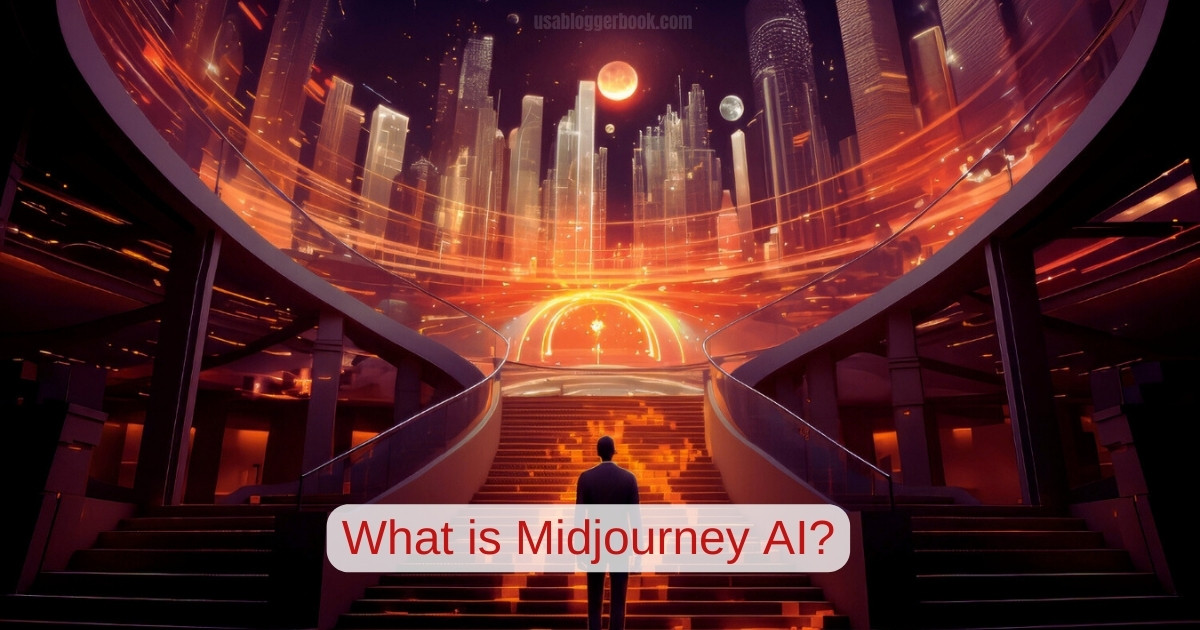
How it Works
-
-
- Discord-Based: Midjourney operates primarily through Discord, a popular communication platform. You join the Midjourney Discord server to interact with the AI.
- Text Prompts: You type commands starting with “/imagine” followed by your description of the image you want (e.g., “/imagine A fluffy cat perched on a bookshelf in front of a roaring fireplace”)
- Image Generation: Midjourney interprets your prompt and generates a set of four initial images.
- Refinement: You can request variations of any image or upscale it for greater detail and resolution.
-
Why It’s Interesting
-
-
- Creativity Unleashed: Midjourney makes it easy for anyone to bring their imagination to life visually, regardless of their artistic skills.
- Wide Range of Styles: It can produce art styles ranging from photorealistic to abstract, illustrations to paintings.
- Iterative Process: The ability to refine and upscale images encourages experimentation and creative exploration.
-
Where to Try It
-
-
- Midjourney Discord: You can access Midjourney through their Discord Server. They offer a limited number of free image generations to start with: https://www.midjourney.com/
-
What is perplexity ai?
Perplexity AI is a revolutionary search engine and conversational chatbot that does not rely solely on a keyword-based search approach. This tool aims to provide you with a specific answer from reliable sources to intricate questions. It does so through:
-
-
- Conversational Understanding: Just treat it as you would a well-informed assistant.
- Summarized Answers: As the AI checks the internet’s numerous web sources, the first information that is most worthy of your attention will be given to you in the shortest amount possible.
- Source Citations: Citation will also ensure that the information can be personally verified, and you can select if you want to study something else on the subject.
- Personalization: It has a library of your past preferences and can use them to provide you with better results.
-
Why should I use Perplexity AI?
-
-
- Save Time: Instead of going through several search results, query what you want directly and take it from there.
- Complex Queries: if your question is too difficult for a search engine to understand, use Perplexity.
- Explore New Topics: Perplexity’s conversational nature is produced was programmed to generate related concepts or information.
-
How to Try Perplexity AI
To try it, visit the following link: https://www.perplexity.ai/
Hello friends, we checked a few Artificial Intelligence Important Questions and Answers, to be continued…
When Ai become self-aware?
Answer:
This is not an easy question for which there is no single answer; it is a controversial issue among AI scientists, philosophers, and the public. However, the following in-depth analysis examines the main constituent parts that one ought to consider:
Defining Self-Awareness
-
-
- No Single Definition: There is no such thing as a single definition of self-awareness. Some of the ideas are:
- Subjective Experience: An internal feeling of self, emotions, and consciousness.
- Recognizing Oneself: Understanding own self as a separate entity from the environment and others.
- Metacognition: Thinking about your own thoughts and understanding your abilities.
- No Single Definition: There is no such thing as a single definition of self-awareness. Some of the ideas are:
-
Current AI State
-
-
- Impressive but Limited: Modern AI demonstrates excellent linguistic abilities, translating from one language to another, generating text, creative works, or playing complicated games. However, much of its current functionality is based on processing large datasets and detecting patterns.
- Lack of True Understanding: Most AI specialists argue that current AI does not have the full subjective experience, nor does it have self-reflection, both characteristics of genuine self-awareness.
-
Possibilities and Challenges
-
-
- Potential Paths: There is a path to enhancing the latter and other pathways that may develop AI with adequate self. For instance, it may be achieved by developing unsupervised study mechanisms, including biological principles, etc.
- Ethics: In addition, it would inspire many questions about its feeling like a machine, its rights, its due conduct, ethical conduct, and other moral questions as well.
- Uncertainty: Many experts believe that even if true AI self-awareness is possible, it is still a far-off future. Many others say that it will never be, or at least not under the current known machine learning frameworks.
-
The Ongoing Conversation
The conversation continues as much as possible. Answering whether AI may accord itself consciousness is not easy, and it can motivate continued research, debate, and ethics questions as AI technology development continues.
If you’d like to learn more, here are some resources:
-
-
- “Will an AI ever become conscious?” – Keysight Blogs: https://www.keysight.com/blogs/en/tech/2023/05/05/will-an-ai-ever-become-conscious
- “AI shows no sign of consciousness yet, but we know what to look for” – New Scientist: https://www.newscientist.com/article/2388344-ai-shows-no-sign-of-consciousness-yet-but-we-know-what-to-look-for/
-
When Ai was invented?
Answer:
Pinpointing the exact moment AI was invented is tricky, as the concept has evolved over time. Here’s a breakdown of key milestones:
Early Foundations:
-
-
- 1940s-50s: Theoretical groundwork laid by Alan Turing’s Turing Test (1950), the Logic Theorist program (1955), and the Dartmouth Summer Research Project on Artificial Intelligence (1956) – where the term “Artificial Intelligence” was coined.
-
Periods of Progress and Setbacks
-
-
- 1960s-70s: Early enthusiasm and significant funding led to developments in machine learning and language processing. However, limitations in computing power and unrealistic expectations led to an “AI winter” of reduced funding.
- 1980s: Resurgence of interest in expert systems (rule-based AI). A second “AI winter” followed due to the limitations of these systems.
- 1990s-2000s: Steady progress with statistical machine learning techniques.
-
The Breakthrough
-
-
- 2010s and Beyond: The explosion of data, powerful computing (GPUs), and refined algorithms led to major breakthroughs in deep learning and neural networks. This revolutionized AI capabilities and is considered by many to be the true turning point in AI’s modern era.
-
Key takeaways
-
-
- AI is an evolving field: It builds on decades of research and ideas.
- No single invention point: There’s no one inventor or clear date we can point towards.
- The modern boom: The last decade saw transformative change, and this is when AI became widely integrated into technology as we know it. After 2020 AI very fast grew everywhere.
-
Read also: How to Turn OFF Meta Ai Instagram
Will Ai replace accountants?
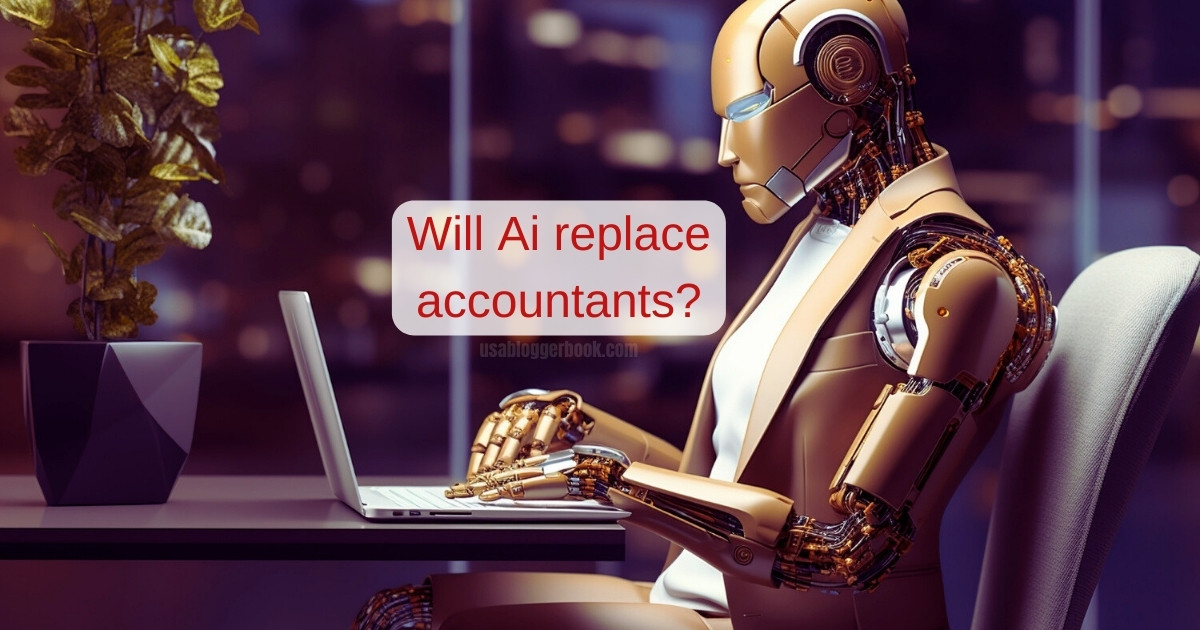
Answer:
The question of whether AI will replace accountants is a complex one. Here’s a balanced view, considering both possibilities and the likely future:
Why AI might replace accountants
-
-
- Automation of routine tasks: AI excels at handling repetitive, data-driven tasks like data entry, bookkeeping, and basic auditing. This could free up accountants’ time but could also potentially lead to job displacement.
- Efficiency and accuracy: AI systems can process information faster and with greater accuracy in some cases, potentially minimizing human error.
-
Why AI likely won’t fully replace accountants
-
-
- Judgment and interpretation: Accountants also rely on their understanding of context to draw conclusions about financial data. AI cannot determine context without being told.
- Complex problem-solving: Finally, fully accurate but reliable solutions are adaptable. For example, the intricate details of tax laws and evolving tax and regulation, a thorough knowledge of complicated business situations require the adaptability and nuance that AI does not have yet.
- Client relationships: Ultimately, while people may use AI to monitor accounting more and check its accuracy more, client trust and personalized communication will remain critical.
-
The most likely future: Collaboration
Collaboration Instead of replacing, the future of accounting is a possibility of collaboration between AI and people:
-
-
- AI to properly handle the tool: while AI will be in charge of most of the mundane tasks, accountants can focus on more high-value tasks such as implementation, strategy, and advisory.
- New skillsets: accountants will need to transform and receive data analysis skills to use AI properly. It means that AI will not take over all accounting but will facilitate custom post-processing.
-
The bottom line: AI will not remove the need for accountants to exist but will transform their role. Accountants who jump on AI early on will have an upper hand as it evolves to the perfect present.
Will AI replace data analysts?
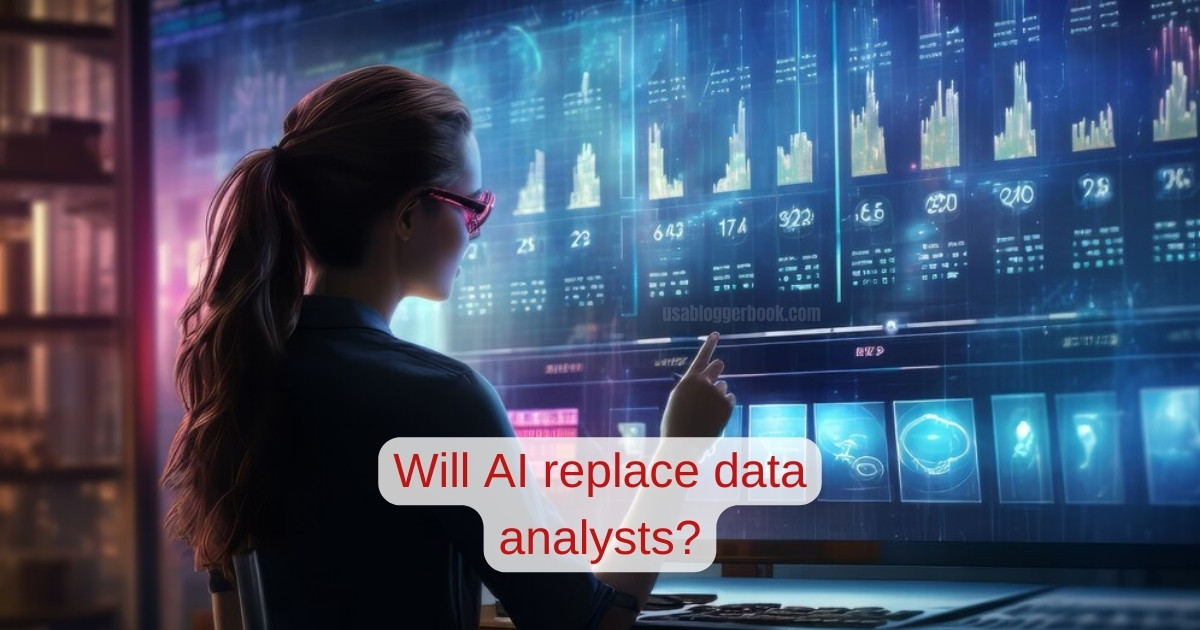
Answer:
The possibility of AI replacing data analysts is a hot topic, but the answer isn’t a simple yes or no. Here’s a breakdown of what to consider:
AI’s Impact on Data Analysis
-
-
- Automate Repetitive Tasks: AI excels at tasks like data cleaning, basic pattern recognition, and routine report generation. This frees up data analysts’ time.
- Improved Efficiency and Accuracy: AI can process data faster and often with fewer errors, enhancing the overall quality of analysis.
- Democratizing Data Insights: AI-powered tools are making data analysis more accessible to non-specialists, potentially changing the workforce landscape.
-
Where Humans Remain Essential
-
-
- Asking the Right Questions: AI can’t replace the human ability to define insightful business problems and determine which data is relevant to answer them.
- Creative Problem-solving: Data analysis requires understanding context, handling ambiguity, and applying judgment – skills AI currently lacks.
- Data Storytelling: Communicating findings through compelling narratives and visualizations is a uniquely human skill that influences decision-making.
-
The Future: Collaboration, Not Replacement
The most likely scenario isn’t AI replacing data analysts entirely, but a transformation of their role:
-
-
- Focus Shift: Data analysts will move away from menial tasks towards higher-value activities like problem formation, critical interpretation, and advising stakeholders.
- Technology-Driven Analysts: Analysts will increasingly partner with AI tools, upskilling in data science and machine learning to harness the power of these technologies.
-
Key Takeaway: AI won’t eliminate the need for data analysts but will redefine their work. Analysts who embrace AI and develop the skills to leverage it will thrive in the future of data-driven business.
Will Ai replace lawyers?
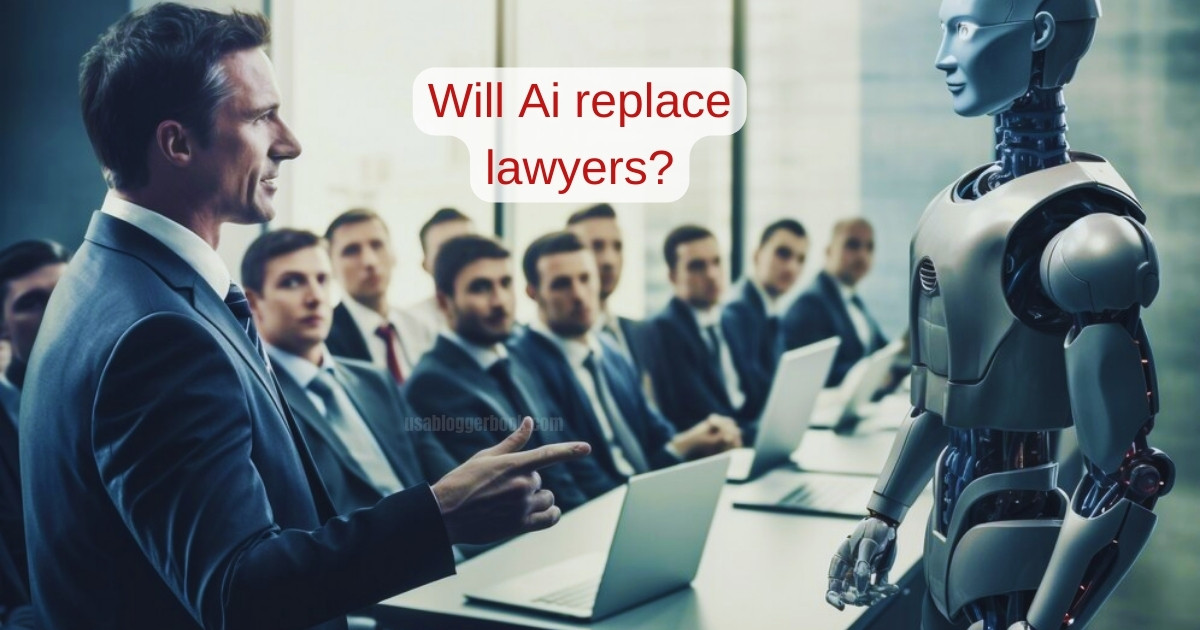
Answer:
It’s unlikely that AI will completely replace lawyers in the foreseeable future, but it will undoubtedly transform the legal profession. Here’s why:
Where AI Excels
-
-
- Legal Research: AI can quickly comb through vast amounts of legal text, statutes, and case law, potentially outperforming humans in efficiency.
- Document Review and Drafting: AI tools can analyze contracts, spot potential issues, and even draft routine legal documents.
- Predicting Legal Outcomes: With enough data, AI systems might make predictions about case outcomes based on historical trends.
-
Where Human Lawyers Remain Essential
-
-
- Strategy and Client Relations: Developing a winning legal strategy, understanding a client’s unique needs, and building trust are inherently human skills.
- Argumentation and Persuasion: Courtroom advocacy, presenting compelling arguments, and negotiating settlements require nuanced social and communication abilities that AI currently lacks.
- Handling Ambiguity and Complexity: Laws and regulations are often interpreted differently. AI struggles with the gray areas and complex situations that lawyers excel in navigating.
- Ethical Considerations: AI can support ethical decision-making but cannot replace the human judgment required to interpret and apply ethical principles within legal contexts.
-
The Likely Future: Collaboration & Transformation
-
-
- AI as a Powerful Tool: AI will empower lawyers to be more efficient and accurate, freeing them from mundane tasks to focus on high-level work.
- Legal Tech Transformation: Law firms will increasingly leverage AI to improve case analysis and document management.
- Adapting to Change: Lawyers who understand how to best collaborate with AI and develop the skills to harness its power will be best positioned for success.
-
The Bottom Line: AI will not replace lawyers entirely. However, the legal profession will evolve significantly as AI becomes more integrated. Lawyers who adapt and embrace the possibilities of AI-powered tools will become even more valuable.
Will AI replace programmers?
Answer:
It’s highly unlikely that AI will entirely replace programmers in the foreseeable future. Here’s why:
AI’s Strengths in Programming
-
-
- Code Generation: AI tools like GitHub Copilot can generate code snippets and even entire functions, increasing efficiency.
- Debugging: AI can help identify bugs and potential errors in code, aiding the debugging process.
- Repetitive Tasks: AI excels at automating repetitive, tedious coding tasks.
-
Where humans remain essential
-
-
- Problem-Solving: Translating complex problems into algorithmic solutions is a core programmer skill not easily replicated by AI.
- Creativity: Devising innovative solutions, designing software architecture, and imagining new possibilities require human ingenuity.
- Understanding User Needs: Building software to meet actual user needs involves empathy and understanding what current AI systems lack.
- Adaptability: Technologies and programming languages constantly evolve. Programmers must learn and adapt quickly, which AI struggles with.
-

The Future: Collaboration and Change
Like many fields, the role of programmers will shift rather than disappear.
-
-
- AI as a Tool: Programmers will utilize powerful AI tools, like code generators and debuggers, to boost productivity.
- Focus on High-Level Tasks: Programmers will shift towards design, architecture, and strategic decision-making.
- Upskilling: Programmers who learn to work effectively with AI will be in high demand.
-
Bottom Line: AI will not eliminate the need for programmers, but it will transform the programming landscape. Here’s what you can expect:
-
-
- More Productivity: AI will make programmers more efficient.
- New Skills Needed: Programmers will need to work alongside AI and learn how to best leverage its capabilities.
-
Why AI is good?
Answer:
AI is good for several reasons. Here’s a breakdown of its key benefits:
Efficiency and automation
-
-
- Speed and Accuracy: AI excels at quickly processing vast amounts of data and performing complex calculations with greater accuracy than humans. This saves time and reduces potential errors.
- Repetitive Task Automation: AI handles mundane and repetitive tasks, freeing up human workers for more creative, value-added work.
-
Improved Decision-Making
-
-
- Data-Driven Insights: AI analyzes massive datasets, uncovering patterns and insights humans might miss. This leads to informed, data-backed decisions in various fields.
- Prediction and Risk Assessment: AI can predict outcomes, identify potential risks, and suggest preventive measures, helping businesses and organizations plan effectively.
-
Innovation and problem-solving
-
-
- Breakthroughs Across Fields: AI drives progress in research, medicine, transportation, and more. It helps solve complex problems and make groundbreaking discoveries.
- New Products and Services: AI enables the creation of unique products and services like advanced recommendation systems, personalized learning platforms, and self-driving cars.
-
Enhanced Daily Life
-
-
- Convenience: AI powers smart assistants, voice recognition, and tailored recommendations, improving our everyday lives.
- Accessibility: AI helps create assistive technologies for people with disabilities, broadening access to information and services.
-
Important Considerations
AI can be powerful, but it’s important to remember:
-
-
- Responsible Development: Developing ethical AI that is unbiased and transparent is crucial to mitigating potential risks.
- It’s a Tool: AI is a tool, and its success depends on how it’s applied. It is neither inherently good nor bad.
- Human-AI Collaboration: The most valuable outcomes will arise from a combination of human intelligence and AI capabilities.
-
Why ai is bad?
Answer:
AI, like any powerful technology, has potential downsides and risks that need careful consideration. Here’s a breakdown of why AI can be bad:
Potential for Harm
-
-
- Job Displacement: As AI automates tasks, it could lead to job losses and economic disruption, particularly in industries that rely on routine work.
- Bias and Discrimination: AI systems trained on biased data can perpetuate existing inequalities and make discriminatory decisions.
- Misuse and Malicious Intent: AI could be used for harmful purposes like developing autonomous weapons, creating deepfakes, or facilitating large-scale surveillance.
-
Security and Privacy Concerns
-
-
- Cybersecurity Risks: AI systems can be vulnerable to hacking and manipulation, potentially causing significant damage.
- Data Privacy: AI’s reliance on massive amounts of data raises concerns about privacy violations and the misuse of personal information.
-
Lack of Control and Accountability
-
-
- The Black Box Problem: Complex AI systems, particularly deep learning models, can be difficult to understand. This can lead to decisions that cannot be easily explained or challenged.
- Accountability Gaps: Determining who’s responsible when an AI system causes harm becomes a complex ethical and legal question.
-
Social and Ethical Implications
-
-
- Exacerbating Inequality: The benefits of AI might accrue to a select few, potentially widening wealth gaps and social divides.
- Dehumanization: Excessive reliance on AI in decision-making could diminish the value placed on human judgment and expertise.
-
The Importance of Responsible AI
The potential downsides of AI don’t mean it’s inherently bad. However, it’s crucial to address these concerns proactively:
-
- Ethical Development: Designing AI systems with fairness, transparency, and accountability in mind.
- Regulation and Oversight: Establishing regulations and guidelines for responsible AI development and use.
- Public Awareness: Educating the public about AI’s potential risks and benefits for informed decision-making.
- Human-Centered Focus: Prioritizing human values and ensuring AI serves humanity rather than replacing it.
Read also: Standards Calculator Keeper Ai
We cover 18 Artificial Intelligence Important Questions and Answers. We continue adding new AI-related questions with answers, so keep visiting the USA Blogger Book website and also share it with your friend circle for more AI awareness.
If you have any Artificial Intelligence-related questions and want to answer from our team, simply ask your AI questions in the comment section with your proper contact details. So once we replayed you, then you will get a notification by email.
Thanks!

